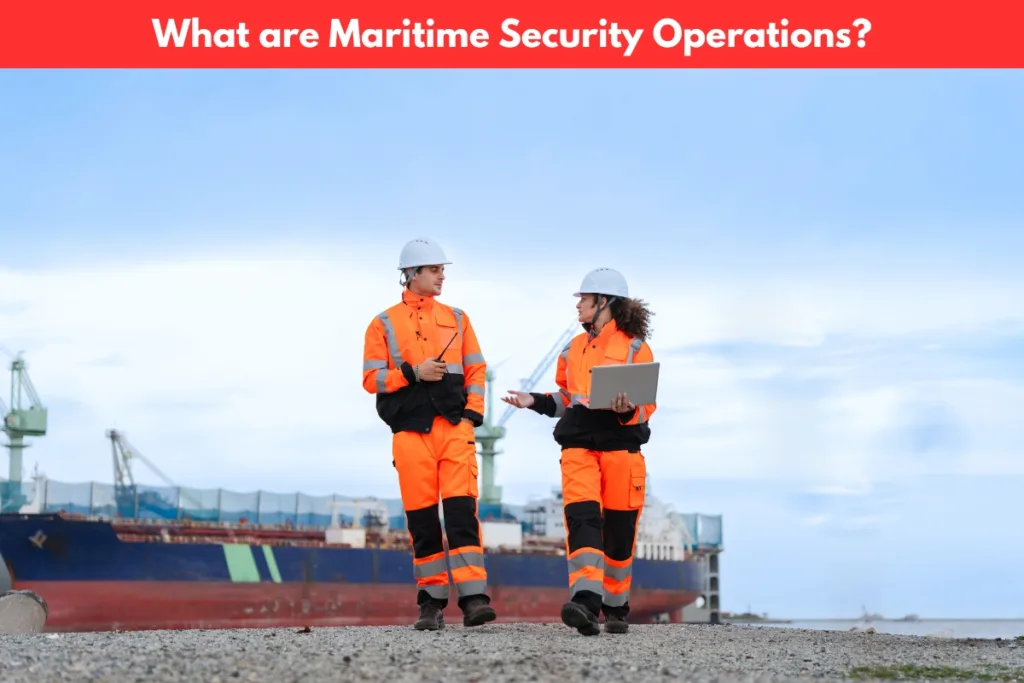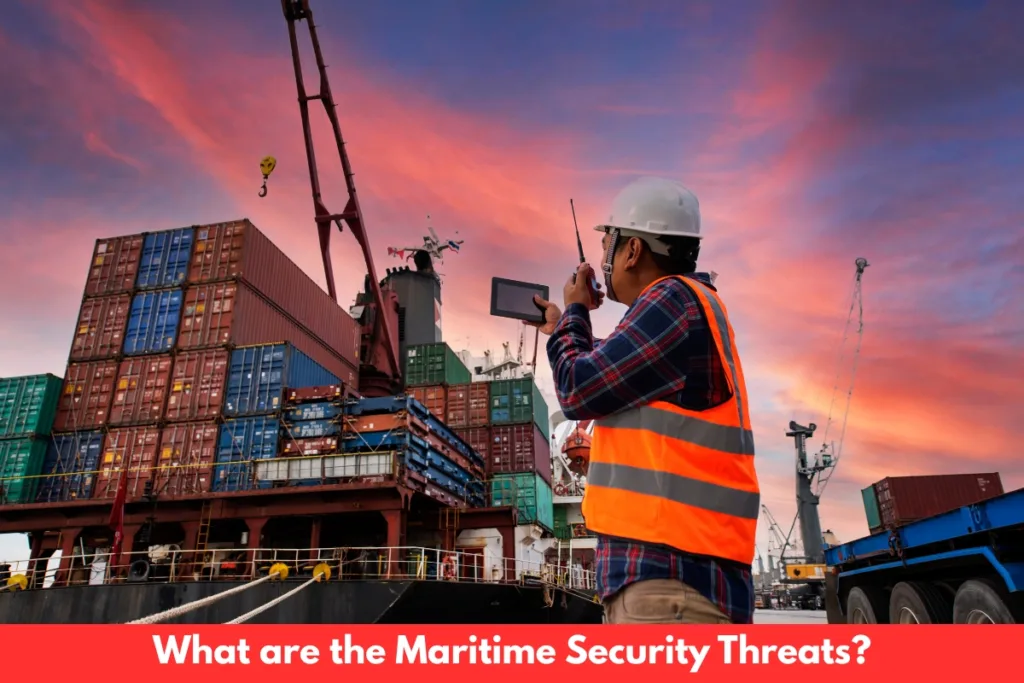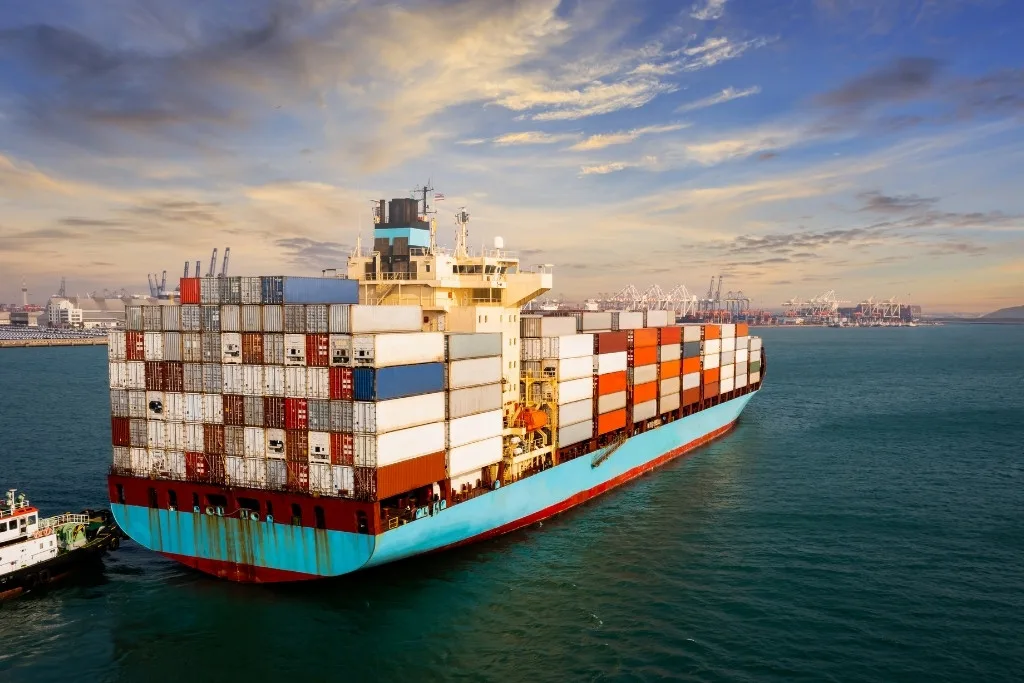There’s nothing quite like the freedom of being out on open water – until you realize just how vulnerable you are out there. Maritime threats aren’t just something from history books or movies. They’re real, evolving, and getting more sophisticated every season.
Last year alone, several high-profile vessels faced serious security incidents ranging from targeted theft operations in Mediterranean marinas to sophisticated hacking attempts targeting navigation systems. One American tech executive had his family vacation interrupted when photographers using drones captured private moments on deck that ended up online within hours. The ocean might seem like the ultimate escape, but without proper maritime security operations, it can quickly become a nightmare.
Here’s what vessel owners and executives need to know about protecting themselves, their guests, and their maritime investments.
What are Maritime Security Operations?

Maritime security operations encompass all the coordinated strategies, procedures, and personnel that protect vessels, passengers, crew, and assets from threats. For private vessels, security operations require discretion, sophistication, and seamless integration with the luxury experience.
Key Elements of Maritime Security for Private Vessels
Security Component | Commercial Shipping Focus | Private Vessel Requirements |
Personnel | Uniformed guards, compliance officers | Discreet specialists with executive protection training |
Approach | Visible deterrence, regulatory compliance | Invisible protection, luxury service standards |
Technology | Standard surveillance, access control | Advanced systems seamlessly integrated into vessel design |
Intelligence | Standardized threat reports | Personalized risk assessment for the owner’s specific profile |
Experience Impact | Security as primary focus | Protection without compromising the luxury experience |
Professional vessel protection combines threat intelligence, trained security specialists, advanced technology, and risk management tailored to each voyage.
At HK Defense Solutions, we understand this balance between comprehensive protection and maintaining the exclusive experience that vessel owners expect from Maritime security. Security should enhance your maritime lifestyle, not restrict it.
Why Is Maritime Security Critical for Vessel Owners?
The vulnerabilities at sea create unique security challenges that don’t exist on land:
Unique Maritime Vulnerabilities for Private Vessels
- Geographic isolation – Often far from rapid response assistance
- Limited jurisdiction – Complex law enforcement authority in international waters
- Communication challenges – Potential connectivity limitations affecting emergency response
- High-value targets – Vessels and guests representing significant wealth concentration
- Physical exposure – Surrounded by open water with multiple approach vectors
- Privacy challenges – Visible from a distance with limited physical boundaries
- Asset concentration – Valuables, art, jewelry, and technology in a confined space
- Extended family exposure – Often traveling with children, the elderly, or other vulnerable guests
High-profile individuals attract unwanted attention. Vessels worth tens or hundreds of millions of dollars represent tempting targets for criminals ranging from opportunistic thieves to organized piracy groups. The combination of wealth, isolation, and limited security response creates risks that don’t exist on land.
What are the Maritime Security Threats?

The threat landscape for private vessels varies dramatically by region and vessel type.
Here are the primary concerns that professional security operations address:
Primary Maritime Security Threats
- Piracy and armed boarding – Still active in regions like the Gulf of Aden, parts of Southeast Asia, and the West African coast
- Marina and port theft – Targeting vessels when docked, focusing on valuables, electronics, and artwork.
- Unauthorized boarding – From paparazzi seeking photos to activists targeting wealthy individuals
- Kidnapping attempts – Targeting vessel owners, family members, or high-profile guests.
- Insider threats – Crew members who may be compromised or exploited for access
- Cyber attacks – Targeting navigation systems, communication networks, and private data
- Privacy violations – Using drones, long-range cameras, or electronic eavesdropping
- Extortion attempts – Particularly targeting public figures or business executives.
According to the International Maritime Bureau, threats have evolved from simple opportunistic attacks to sophisticated operations specifically targeting high-value vessels. The Mediterranean during the summer season presents different risks than the Caribbean or Southeast Asian cruising grounds, with each region requiring specialized intelligence and protection strategies.
Essential Components of Maritime Security Operations
Effective vessel protection requires a coordinated approach combining people, procedures, and technology. Here’s what comprehensive maritime security looks like:
Maritime Security Team: Who Protects Your Vessel?
The cornerstone of protection is having the right personnel. Professional maritime security specialists typically come from military special forces, naval operations, or specialized maritime law enforcement with additional executive protection training. Unlike standard security guards, these specialists understand both maritime environments and the unique needs of high-net-worth clients. They combine tactical expertise with discretion and professionalism that blend seamlessly into the luxury vessel environment. Guests often don’t even realize security personnel are present until a situation develops.
Key responsibilities include:
Function | Description | Benefit |
Threat Assessment | Ongoing evaluation of potential risks | Proactive rather than reactive protection |
Access Control | Managing who boards and debarks | Preventing unauthorized access |
Perimeter Security | Monitoring vessel approaches | Early warning of potential threats |
Emergency Response | Managing security incidents | Rapid, professional handling of situations |
VIP Protection | Safeguarding owners and guests | Personalized protection for individuals |
Liaison with Authorities | Coordination with maritime agencies | Streamlined response from local authorities |
At HK Defense Solutions, our maritime security personnel have extensive experience protecting executives at sea, combining vessel security expertise with the executive protection standards our clients expect on land.
Physical Security Measures on Vessels
Modern vessel protection utilizes advanced technology and physical countermeasures, forming multiple security layers:
Security Layer | Technologies | Purpose |
Perimeter Detection | Marine radar, sonar systems, motion sensors | Early warning of approaching threats |
Surveillance | Thermal cameras, night vision CCTV, 360° coverage | Continuous monitoring of the vessel surroundings |
Access Control | Biometric systems, electronic locks, keycard systems | Preventing unauthorized entry |
Communication | Encrypted radios, satellite phones, and emergency beacons | Secure coordination during incidents |
Counter-measures | Anti-drone systems, water cannons, and acoustic devices | Active deterrence against approaching threats |
Safe Areas | Reinforced citadel rooms, secure communication equipment | Protection during serious incidents |
The key is implementing these measures discreetly, preserving the vessel’s aesthetic appeal while providing robust protection. Security enhancements should be invisible to casual observation but immediately effective when needed.
Maritime Cyber Security Protection
Modern vessels are floating networks of connected technology, creating significant cyber vulnerabilities. Cyber protection for maritime environments requires specialized expertise beyond standard IT security.
Critical Cyber Protection Measures for Vessels
Network Segregation
- Separate navigation/operational systems from guest networks
- Isolated crew management systems
- Protected owner business networks
Communications Security
- Encrypted satellite communications
- Secure VPNs for sensitive data
- Protected voice communications
System Protection
- Regular security updates for all onboard systems
- GPS spoofing detection systems
- Intrusion detection monitoring
- Access control management
Human Factors
- Crew cybersecurity awareness training
- Guest usage protocols
- Social engineering awareness
According to a 2024 maritime cybersecurity report, over 40% of yacht owners have experienced at least one cyber incident in the past two years. These attacks range from intrusion attempts to successful breaches, accessing personal information or control systems. Similar to what we discuss in our corporate security article, cyber threats continue evolving rapidly, requiring constant updates to protection strategies.
When Should You Engage Professional Maritime Security Services?
While some vessels maintain permanent security teams, others engage services for specific situations. Professional protection becomes essential in these scenarios:
Scenarios Requiring Professional Maritime Security
- High-Risk Transit – Passing through known piracy regions or unstable areas
- High-Profile Guests – When hosting celebrities, executives, or politically exposed persons
- Remote Destinations – Cruising areas with limited authority presence or response capability
- Media Attention – During high-profile events or when a vessel has public interest
- Family Voyages – When children or vulnerable family members are aboard
- Specific Threats – When intelligence indicates targeting of the vessel or the owner
- Extended Absence – During shipyard periods or when the vessel is unoccupied
- Charter Operations – When a vessel carries unfamiliar guests with unknown profiles
Many vessel owners integrate security consulting into their standard operational planning.
Frequently Asked Questions
How much does maritime security cost for private vessels?
Professional maritime security teams typically range from $2,000 to $4,000 daily, depending on vessel size, location, and threat level. Comprehensive packages, including cyber protection and advanced technology, can reach $15,000-25,000 monthly for permanent security operations.
Do private yachts use armed security?
Armed security is permitted in certain high-risk regions with proper licensing. Most private vessels employ unarmed teams using non-lethal countermeasures in standard cruising grounds where firearms face strict regulations.
What are the most dangerous waters for superyachts?
The Gulf of Aden, parts of the Malacca Strait, the Gulf of Guinea, and the southern Philippines remain high-risk regions. Even popular destinations like parts of the Caribbean can present targeted theft risks to luxury vessels.
How do you choose a maritime security team?
Look for specialists with naval/maritime backgrounds, executive protection experience, discretion, and understanding of luxury environments. The best teams provide comprehensive threat intelligence, maintain current training, and seamlessly integrate with crew operations.
Final Thoughts
Maritime security operations ultimately protect something priceless – the freedom to enjoy the maritime lifestyle without constant worry. The ocean should represent liberty, not vulnerability. Effective vessel protection balances comprehensive security with maintaining the luxury experience. The best security remains practically invisible until the moment it’s needed, allowing owners and guests to focus on enjoying their time at sea rather than worrying about potential threats.
At HK Defense Solutions, we provide comprehensive risk assessments to determine appropriate security levels for specific voyages and cruising patterns.
